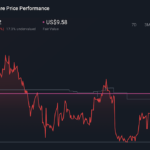
* Australia’s Senate began debating the amendments onWednesday
* Some politicians concerned changes bad for smallerpublishers(Recasts and updates throughout with competition regulatorinterview)
By Byron Kaye and Colin Packham
CANBERRA, Feb 24 (Reuters) – The architect of Australianmedia reforms being watched around the world claimed victory onWednesday, even as critics said concessions to the laws forcingBig Tech to pay for news content have given Facebook and Googlea get-out clause.
The Australian government made late changes to the lawsafter Facebook last week blocked news content in Australia,escalating a dispute over the proposed legislation and catchinginternational attention.
The amended legislation is expected to pass the Senate thisweek, despite opposition from some minor opposition parties andindependent politicians who argue it disadvantages smaller newscompanies.
Rod Sims, the chairman of the Australian Competition andConsumer Commission (ACCC), told Reuters the bargaining powerimbalance he was tasked with correcting had been addressed.
“The changes the government’s done are things that eitherdon’t matter much or are just to clarify things that, at leastin Facebook’s mind, were unclear,” said Sims, who led thedrafting of the legislation.
“Whatever they say, they need news. It keeps people on theirplatform longer – they make more money.”
With Australia’s reforms serving as a model for othernations to adopt, Facebook was also keen to claim a win.
Facebook Vice President of Global News Partnerships CampbellBrown stressed the company had retained the ability to decide ifnews appeared on its platform and could sidestep the forcednegotiation for content payment under the original legislation.
In a key amendment to the legislation, Treasurer JoshFrydenberg was given the discretion to decide that eitherFacebook or Google need not be subject to the code, if they makea “significant contribution to the sustainability of theAustralian news industry.”
The original legislation had required Facebook and AlphabetInc’s Google to submit to arbitration if they couldnot reach a commercial deal with Australian news companies fortheir content, effectively allowing the government to set aprice.
Facebook, which contends news accounts for just 4% oftraffic on its site in Australia, said it would restore news onAustralian pages in the coming days.
“This isn’t a must-carry regime,” said Sims. “We never saidwe’re forcing Facebook to keep showing news.”
SMALL MEDIA, BIG CONCERNS
While the Senate is expected to pass the legislation, withthe main opposition Labor Party supporting the ruling LiberalParty, some politicians and media companies have expressedconcern about the amendments.
“This changes the bill significantly,” independent senatorRex Patrick, who plans to vote against the amended bill, toldReuters.
“The big players could successfully negotiate with Facebookor Google. The minister then doesn’t designate them, and all thelittle players miss out.”
Lee O’Connor, owner and editor of regional newspaper TheCoonamble Times, agreed the amendments favoured big mediagroups.
“It’s the vagueness of the language that’s the main concern,and the minister’s discretion is part of that,” O’Connor said.
Frydenberg has said he will give Facebook and Google time tostrike deals with Australian media companies before decidingwhether to enforce his new powers.
CONTENT DEALS
The code was designed by the government and competitionregulator to address a power imbalance between the social mediagiants and publishers when negotiating payment for news contentdisplayed on the tech firms’ sites.
After first threatening to withdraw its search engine fromAustralia, Google has instead struck a series of deals withseveral publishers, including a global news deal with News Corp.
Television broadcaster and newspaper publisher Seven WestMedia on Tuesday said it had signed a letter of intentto reach a content supply deal with Facebook within 60 days.
Rival Nine Entertainment Co also revealed onWednesday it was in negotiations with Facebook.
“At this stage, we’re still obviously proceeding withnegotiations,” Nine chief executive Hugh Marks told analysts ata company briefing on Wednesday. “It is really positive for ourbusiness and positive particularly for the publishing business.”
(Reporting by Colin Packham and Byron Kaye; writing by JonathanBarrett; editing by Jane Wardell)








